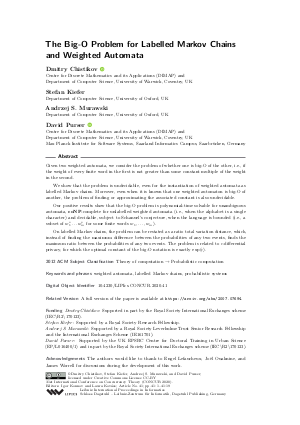LIPIcs.CONCUR.2020.41.pdf
- Filesize: 0.71 MB
- 19 pages

 Creative Commons Attribution 3.0 Unported license
Creative Commons Attribution 3.0 Unported license
















Feedback for Dagstuhl Publishing